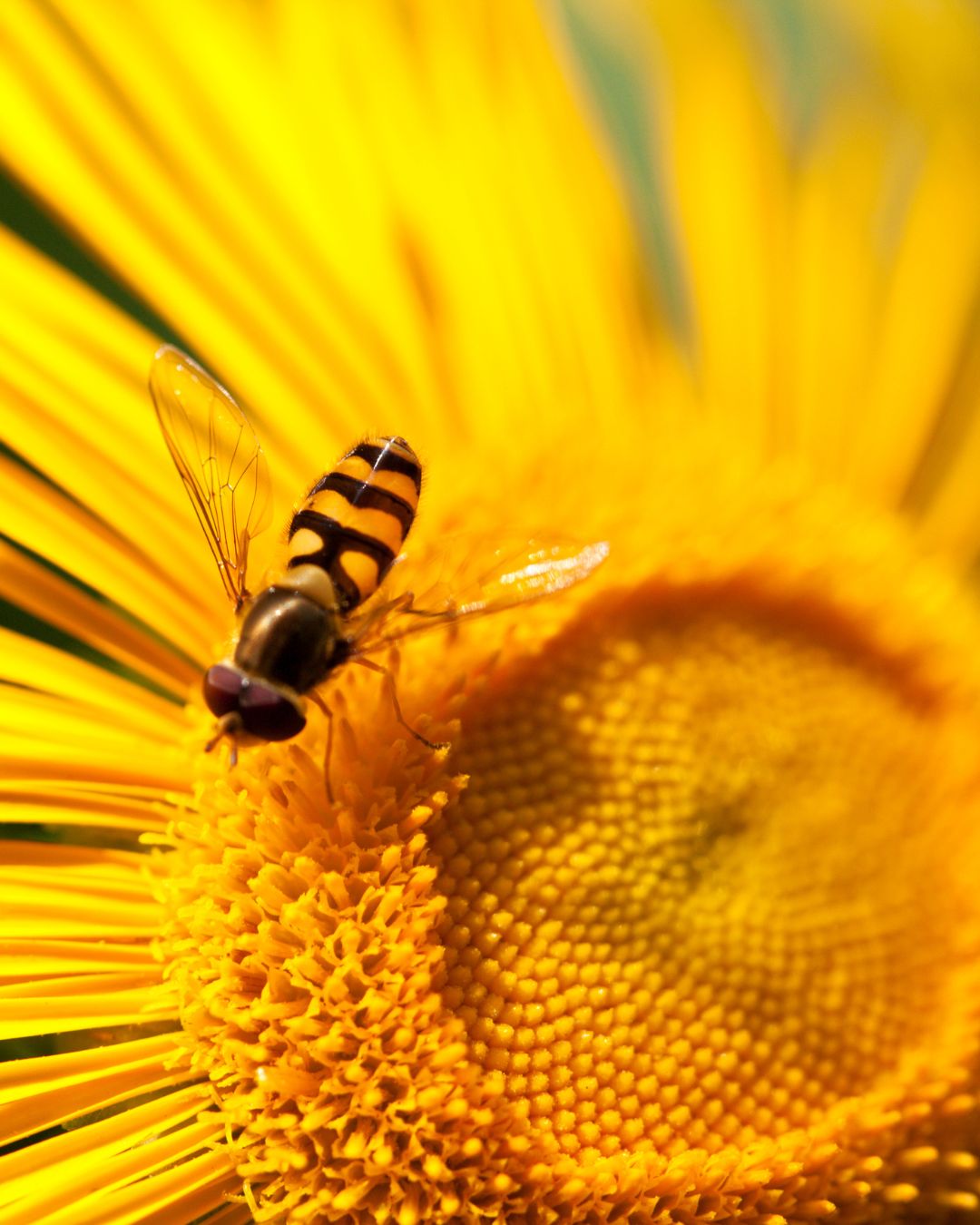The next time you bite into a juicy apple, thank a bee! Bees are the world’s pollinators. Many of the foods we love and eat would not exist without them. Bees are essential to agriculture, and right now, their population is declining across the world. We all need to do our part to help create bee-friendly gardens to help our pollinator friends thrive!

Why do We Need Bees?
Bees give us honey, but they do so much more than that! While the honeybee is the most well-known, there are over 20,400 species across the planet. Here in Ontario, we have over 400 native species.
These bees are busy at work pollinating flowers and vegetables. To germinate, many plants require the transfer of pollen from the male part of the flower (the anther) to the female part (the stigma). Bees move from flower to flower, looking for nectar and leaving behind a tiny trail of pollen, allowing plants to produce flowers and food.

What is Happening to the Bees?
Many factors affecting our ecosystem threaten the bee population, including pesticide use, habitat loss, and the introduction of invasive plants and non-native bees.
I recently had the pleasure of speaking with Sandra Rehan and the folks at BEEc out of York University. They are doing incredible work studying bees, the declining population, and how we can bring them back. They teach people (including me!) about bee identification, at-risk species, and pollinator-friendly gardening practices.

How to Grow a Bee-Friendly Garden and Lawn
- Don’t rush to remove leaves and debris in the spring.
Fallen leaves in your garden provide the perfect home for overwintering bees. If you clean up too early, you risk disturbing little bees who aren’t ready to leave their shelter. Wait until late April or May (if you can stand the mess) to cut back perennials and remove fallen leaves. Baby bees will thank you!
- Don’t over-mulch.
For bees napping in the garden through the winter, a heavy load of mulch makes it harder for them to get to the surface. If you have areas in your yard with mulch, consider leaving one spot mulch free that bees can use as a hibernating spot for the winter.

- Choose native plants.
Plants native to your area provide the best food source for the bees. Perennial gardens with a wide variety of plants blooming at various times throughout the season will create a constant food source for our buzzing friends. Popular plants native to Ontario you can add to your yard are Black-Eyed Susan, Coreopsis and Coneflower.

- Plant early spring bloomers.
Don’t we all get hungry after a nap? When bees first emerge in the spring, fewer food sources are available than in the summer heat. Adding a few early spring blooming bulbs like hyacinth, daffodils or snowdrops give bees their first food of the season.
- Leave them some dandelions.
Dandelions provide an excellent early source of food for bees. While it can be tempting to rip out the blemishes on your lush, green lawn, it just takes a few for the bees to have a snack.

- Don’t over-mow.
Bees live in the grass, so be sure not to mow too often or cut your grass too short. (this is also best practice for a healthy, green lawn).

- Offer bees a drink.
Wouldn’t you be thirsty after buzzing around in the sunshine all day? A simple water feature in your garden, like a bird bath or fresh fountain, will help keep the bees hydrated in our hot summer.

- Follow Health Canada recommendations.
Health Canada has regulations in place banning pesticides that are harmful to bees and our environment. Look for the stamp of approval on every product you purchase. Avoid using anything in your yard or garden that is not Health Canada-approved.
With a little effort, you can create a haven for the bees. We can help our pollinator friends strengthen their numbers if we all do our part. A bee-friendly garden helps provide a place for bees to rest, eat and drink. And they’ll repay the favour by pollinating your flowers, fruits, and vegetables in their travels!
Happy bees, happy world!
Frankie

